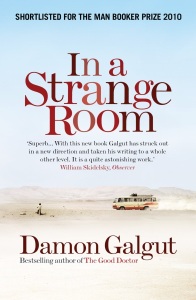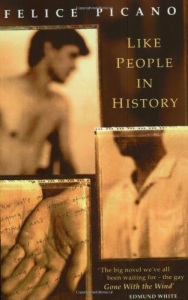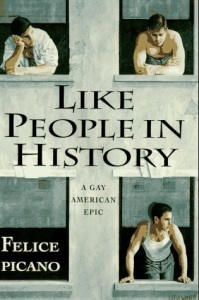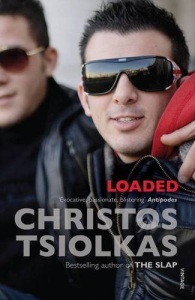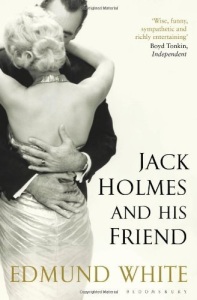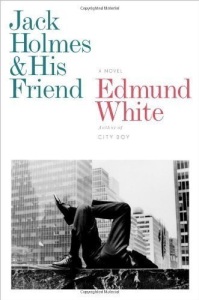 (We have not discussed this in the group but it was a ‘spin off’ from one of our meetings and this review is in a personal capacity.)
(We have not discussed this in the group but it was a ‘spin off’ from one of our meetings and this review is in a personal capacity.)
This, her fourth novel, moves away from the world of the church into the world of anthropologists. It’s based on her own experiences working at the African Institute in London. ‘After the war, I got a job at the International African Institute in London. I was mostly engaged in editorial work, smoothing out the written results of other people’s researches, but I learned more than that in the process. I learned how it was possible and even essential to cultivate an attitude of detachment towards life and people, and how the novelist could even do “field-work” as the anthropologist did. And I also met a great many people of a type I hadn’t met before. The result of all this was a novel called Less Than Angels, which is about anthropologists working at a research centre in London, and also the suburban background of Deirdre, one of the heroines, and her life with her mother and aunt. There’s a little church life in it too, so that it could be said to be a mixture of all the worlds I had experience of. I felt in this novel that I was breaking new ground by venturing into the academic scene.’ –Barbara Pym, “Finding a Voice” (1978 BBC radio talk)
She uses her experience in her portraits of impecunious young students vying for study grants and the sometimes less than ethical way that handsome men inveigle money for their projects from susceptible widows.
Themes include the breakup of relationships and bereavement, (quoting a passage addressed to men in Jane Austen’s Persuasion—“we certainly do not forget you so soon as you forget us” — to show that for some women a life of passive heartbreak had not changed much,” young love and the ups and downs of everyday domestic life.
We also see how the post-war English society of the 1950s was still influenced by Edwardian values yet had been profoundly changed: “Two wars, motor cars, and newer and ever more frightful bombs being invented all the time” (Mark Penfold); a lack of servants (Rhoda Wellcome), and “women consider themselves our equals now… [although] men were once the stronger sex” (Digby Fox). The by which the English middle-classes maintained their imperial power, was also changing and not only in the way suggested by Mark, that in West Africa “the roar of the high-powered motor-car of the urbanized anthropologist” was more likely to be heard than the roar of wild beasts.
Anthropologists don’t need to go to Africa. They can observe a debutante ball, men’s clubs and suburban courtship practices: the fur cape and pearls of the upper-middle class lady, the umbrella and briefcase of the businessman, and the squire’s shooting-stick, likened to a chief’s regalia. Although Charles Burkhart claims that “She has made Africa come home to suburbia and found that they are the same”, Pym uses African culture to show how repressed English society is. The decline of empire might be a symbol for impotence and loss.
The genteel, polite, ladies tend not to mention sex. It is kept under wraps. Yet there is a fascination with uninhibited African sexuality as, in the final chapter, Tom’s sister, Josephine, supposes that Tom’s African carvings would be “very crude stuff… not the kind of thing one would want to have in one’s house,” Catherine agrees: “Some of them are positively rude!”. Cf. Minnie Foresight’s taking exception to an academic article (about tribal initiation ceremonies with an account of behaviour and a rough translation of songs which she found “most shocking;” she was “deeply disturbed” by the “unpleasant details”) as obscene.
Middle Englanders lack interest in other people’s lives, especially those in “darkest Africa”. Pym describes suburbia as a cosy, decorative place that stifles imagination, but she also indicates “the dreadful things in the world” that lie behind it. Alaric Lydgate says that, “life was very terrible whatever sort of front we might put on it, and only the eyes of the very young or the very old and wise could look on it with a clear untroubled gaze” Television and radio are used to drug the mind rather than to gain understanding of people not like oneself. However, newspapers are read. The two sensational news-items at the time were Mau Mau terror campaign (for political independence from Britain) in Kenya, and the trial of the serial killer, John Christie, who hid the bodies of his female victims around his house. His conviction led the change in legislation regarding the death penalty in Britain, because he was found guilty of a murder for which Timothy Evans had earlier been hanged after Christie gave evidence against him. Full details of the Mau Mau atrocities against women were concealed from the British public and Pym does not mention them. However, she does show Deirdre’s Aunt Rhoda, “in common with a good many people from all walks of life”, avidly reading about the murder of women whose bodies had been secreted in a London house. So English society is shown to be just as “primitive” and “uncivilised” as it considers African society to be.
At the beginning, Catherine Oliphant, a central character who writes romantic stories for magazines, ss sitting in a cafe speculating about the people sitting near her, wondering what their real stories are.
Tom is another mayor character, a brilliant anthropology graduate who gained a fellowship to do field work in Africa on kinship structures.
Catherine makes a (“catty?”) comment to Tom about how much his indifference has wounded her: “Your people wait for you. How soothing it will be to get away from all this complexity of personal relationships to the simplicity of a primitive tribe, whose only complications are in their kinship structure and rules of land tenure, which you can observe with the anthropologist’s calm detachment.”
Some see him as “a kind of Lawrence of Arabia figure —so very far from the truth”
‘I should have thought that one might have discerned the faintest glimmer of his genius by now.’
‘Certainly his conversation isn’t brilliant, perhaps even ours is a little better than his’, said Digby uncertainly. ‘And I thought the paper he read in the seminar last term – well – confused’, he added, plunging further into disloyalty. Mark took him up eagerly on this point and they went into a rather technical discussion at the end of which they had the satisfaction of proving, at least to themselves, that Tom, far from being brilliant, was in some ways positively stupid and not always even sound.
‘Almost a diffusionist’, said Mark, his eyes sparkling with malice.
‘Oh, come’, said Digby in a shocked tone. Feeling that they had perhaps gone a little too far, he changed the subject.
If Tom is the hare, Digby is the tortoise who sees himself as “worthy, painstaking and biding his time” and, as Professor Mainwaring assessed him, “very conscientious and will probably make an excellent husband and father”. Digby shares Pym’s own wit, summing up Tom as “detribalized” and cracks jokes with his fellow student, Mark, and who sings an air from La Bohême in their squalid student digs.
There are those who say that Pym drew on a female tradition of the genre of the Woman’s Novel enabling her to yoke male-dominated academic anthropology together with the popular female culture of dress-making and table-setting. Edwin Ardener said of her work that it was “far beyond our time” in its portrayal of the “strange unreliability that respected figures show in her novels,” and in its “perception of disturbing chasms beneath the social surface.” Although Pym’s work of the 1950s seemed decorous, it was obliquely a forerunner of the rebellious feminist writings of the 1960s’ Women’s Liberation Movement pioneered by radicals such as Germaine Greer and Margaret Atwood.
I had to look up ‘topee’ = a lightweight hat worn in tropical countries for protection from the sun. Not a word in the current OED.
Pym is said to have done her research into anglo-catholicism. It is odd, therefore, that she mentions an organ playing at an early Sunday morning Low Mass. Low Mass is, by definition, a said service with no music. And I doubt whether, even back in the 1950s, there would be as many as a hundred communicants.
I liked the statement about ladies, after lunch, who left the dishes as washing up ‘was not their custom.’
Quotations
She left the bathroom as she would wish to find it, folding her own towels and everyone else’s in a special way that pleased her. It worried her a little that Malcolm was not yet in, for he would spoil the symmetrical arrangement … Before going back to her own room, Rhoda went quietly downstairs to see if her sister had laid the breakfast satisfactorily. She saw that Mabel had made an effort, but there were one or two things missing, the marmalade spoon and the mats for the coffee; she put right these omissions and then returned quietly to her room. Deirdre’s hand still lay on Tom’s; their moussaka would be getting cold, Catherine thought, and then pulled herself up, horrified at the sardonic detachment with which she had been watching them… I’m not one of those excellent women*, who can just go home and eat a boiled egg and make a cup of tea and be very splendid, she thought, but how useful it would be if I were!
Catherine often wondered whether anthropologists became so absorbed in studying the ways of strange societies that they forgot what was usual in their own.
And so it came about that, like many other well meaning people, they worried not so much about the dreadful things themselves as about their own inability to worry about them.
When one came to consider it, what could be more primitive than the rigid ceremonial of launching a debutante on the marriage market?
Like so many clergymen he had of necessity acquired that easy confidence in dealing with unmarried middle-aged women which is not often granted to the layman
‘After all, life isn’t really so unpleasant as some writer make out, is it?’ she added hopefully.
‘No, perhaps not. It’s comic and sad and indefinite – dull, sometimes, but seldom really tragic or deliriously happy, except when one’s very young.’
“…I’m writing a story about somebody who’s just come back from Africa. I’ve made him a big game hunter, that seems suitable for the type of people who will read it. Naturally I have to make him have thoughts about the country he’s been in, and I was wondering if they were too wildly improbable.”
“I’m afraid I should be no judge of that,” said Alaric. ”I shouldn’t like to say what thoughts might be in the mind of a big game hunter.”
“Oh, I didn’t mean that exactly. You see, I have him sitting in this West Kensington hotel, remembering the noise of the rain splashing down among the mangroves, or the laughing faces of the women bringing in the yams…But would the rain splash down among the mangroves, and would the women bring in the yams?”
Mark craned head round to read what she had been writing; it seemed be an article about how to give an ‘inexpensive’ cocktail party.
‘Yes, darling, “inexpensive” or cheap, really,’ said Catherine brightly. ‘Don’t get the best French vermouth and put more and more ice with the drinks so that as time goes on people will be drinking coloured melted ice-water and they don’t even know! And if they suspect, then they’re horrid people and not the kind you’d want to have at your party anyway. Writing is such a comfort, isn’t it, that’s what people always say — it really does take you out of yourself. I sometimes feel it lets you more into yourself, though, and really the very worst part.’
“She wished she had a ‘nice book’, something that would take her out of herself, but the bookshelf by her bed wasn’t very encouraging, and only made her think what very strange books people gave as Confirmation presents. The only real book of devotion she had, suitably enough from her headmistress, told her that we are strangers and pilgrims here and must endure the heart’s banishment, and she felt that she knew that anyway”.
“A very curious sound, which it is impossible to reproduce here, then came from her. Has she been in the company of ordinary people, it might have been supposed that something had gone down the wrong way and that she was choking, but here nobody took any particular notice of her or Father Gemini when he cried excitedly, “No, no, it is this!” and proceeded to emit a sound which would have appeared to the initiated exactly the same as Miss Lydgate’s choking noise.”
“There are few experiences more boring or painful for a woman than an evening spent in the company of one man when she is longing to be with another, and that evening Bernard’s dullness seemed to have a positive quality about it so that it was almost a physical agony, like the dentist’s drill pressing on a sensitive tooth.”
“They were soon absorbed in the play, for it was about people like themselves, being an adaptation of a well-known stage success. After a while both the sisters realized they had seen it before, but neither could remember exactly how it ended. So life seemed to go round in a circle, with tables hurtling through the air.”
“Of course it’s alright for librarians to smell of drink.”
A thesis must be long. The object, you see, is to bore and stupefy the examiners to such an extent that they will have to accept it —only if a thesis is short enough to be read all through word for word is there any danger of failure..
“If we lamented the decay of the great civilizations of the past, he thought, should we not also regret the dreary leveling down of our own?”
“He often thought what a good thing it would be if the wearing of masks or animals’ heads could become customary for persons over a certain age. How restful social intercourse would be if the face did not have to assume any expression–the strained look of interest, the simulated delight or surprise, the anxious concern one didn’t really feel. ”
“Do they understand the principles of cooking as we know it?” asked Rhoda.
“Oh, yes, a good many of them do,” said Alaric. “In some very primitive societies, though, they would just fling the unskinned carcase on the fire and hope for the best.”
“Yes, like that film of the Australian aborigines we saw at the Anthropology Club,” said Deirdre. “They flung a kangaroo on the fire and cooked it like that.”
“Now who would like some potato salad?” said Rhoda, feeling that there was something a little unappetizing about the conversation. She had imagined that the presence of what she thought of as clever people would bring about some subtle change in the usual small talk. The sentences would be bright jugglers’ balls, spinning through the air and being deftly caught and thrown up again. But she saw now the conversation could also be compared to a series of incongruous objects, scrubbing-brushes, dish-clothes, knives, being flung or hurtling rather than spinning, which were sometimes not caught at all but fell to the ground with resounding thuds.
Catherine is thinking this after Tom’s aunt has come to visit her: The day was coming to its end, and although it had been tiring and upsetting it had at least been full and that, she supposed, was all to the good. Pain, amusement, surprise, resignation, were all woven together into a kind of fabric whose colour and texture she could hardly visualize as yet. Something with little lumps on it, she thought, knobs or knops as it said in the fashion magazines.
“…though life was sometimes too strong and raw and must be made palatable by fancy, as tough meat may be made tender by mincing”.
“…and secondly because it was helpful to missionaries and government officials to know as much as possible about the people they sought to evangelize or govern”.
“And so it came about that, like many other well-meaning people, they worried not so much about the dreadful things themselves as about their own inability to worry about them”.
“He often thought what a good thing it would be if the wearing of masks or animals’ heads could become customary for persons over a certain age. How restful social intercourse would be if the face did not have to assume any expression–the strained look of interest, the simulated delight or surprise, the anxious concern one didn’t really feel”.
“Miss Clovis was acting as secretary to the selection committee and enjoyed the work, which was congenial to her natural curiosity about people and her desire to arrange their lives for them”.
“The small things of life were often so much bigger than the great things, she decided, wondering how many writers and philosophers had said this before her, the trivial pleasures like cooking, one’s home, little poems especially sad ones, solitary walks, funny things seen and overheard”.
“Understanding somebody else’s filing system is just about as easy as really getting to know another human being” .
“Men appeared to be so unsubtle, but perhaps it was only by contrast with the tortuous delicacy of women…”.
“…having the power to grant her moments of happiness but being very stingy with them just now”.
“…and in the evening read her favourite depressing poets, Hardy, Matthew Arnold and the lesser Victorians…”.
“Oh, what cowards scholars are! When you think how poets and novelists rush in with their analyses of the human heart and mind and soul, of which they often have far less knowledge than darling Tom has of his tribe”.
“Her words seemed to ring out among the peacocks, making Catherine wonder if they often heard or witnessed the deeper passion. The gossipy office chatter, the dreary female conversation, the quiet furtive hand-holdings, would be more what they were accustomed to, she felt” .
“Tom left the room feeling rather sad. He had the impression that his uncle was a kind of prisoner, or a sacrifice laid before the altar of the television set which demanded a constant tribute of victims”.
“Digby, characteristically, took up a handful of pieces of the sky and began trying to fit them together, leaving the more interesting sections of gondolas, water and buildings to Mark and the girls”.
“ ‘Writing is such a comfort, isn’t it, that’s what people always say–it really does take you out of yourself. I sometimes feel it lets you more into yourself, though, and really the very worst part’”.
“But sometimes, she thought, grief was all one had to give them and even then one was conscious of the poverty of one’s feelings, as if there were some lack in oneself that prevented one from suffering as deeply, as splendidly almost, as people did in the works of sensitive female novelists”.
* the title of another of her novels
return to the home page
 (Not discussed by the group but written in a personal capacity.)
(Not discussed by the group but written in a personal capacity.)
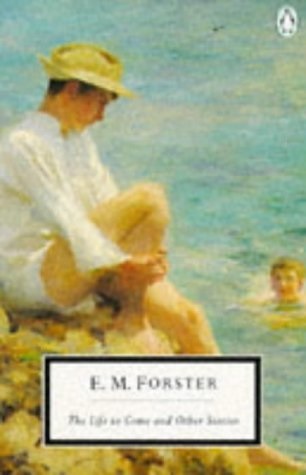 (Not discussed by the group but written in a personal capacity.)
(Not discussed by the group but written in a personal capacity.)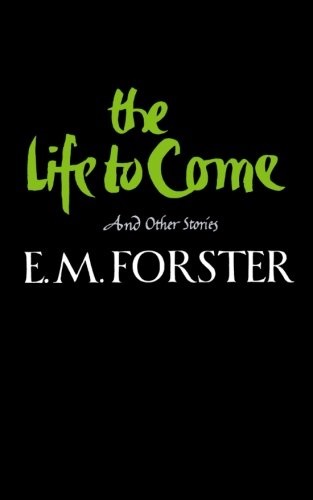 Quotations:
Quotations: